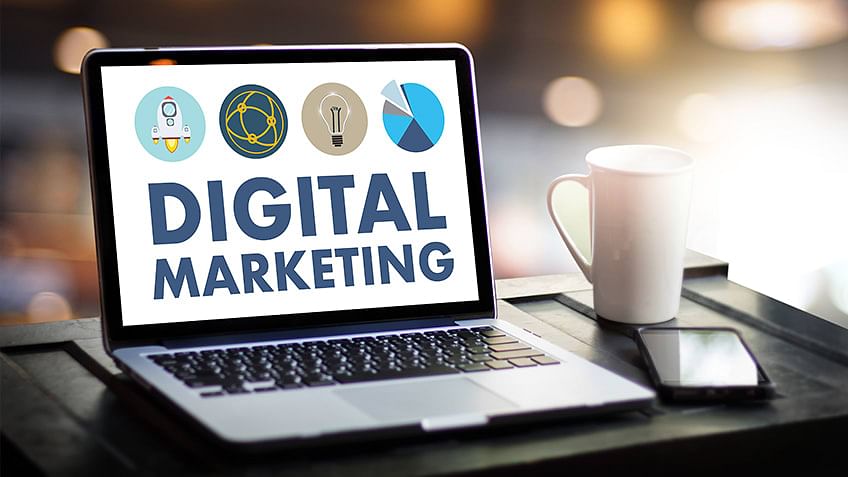Digital marketing has fundamentally reshaped the way businesses approach their customers. With the rise of the internet and the increasing dominance of digital platforms in our daily lives, businesses must adapt their strategies to keep up. The shift from traditional methods like print ads and TV commercials to online channels means that marketing has become more interactive, targeted, and measurable than ever before.
At its core, digital marketing is all about leveraging digital channels to promote products or services. These enhancing customer experience with AI channels include social media platforms, search engines, websites, email, and even mobile apps. The beauty of digital marketing lies in its ability to reach a global audience in real time. Whether a small business or a large corporation, digital marketing offers an accessible way for brands to connect with their customers where they spend most of their time—online.
One of the most significant changes that digital marketing has brought to the table is the increased ability to measure success. Unlike traditional marketing, where tracking the effectiveness of a campaign could be tricky, digital marketing provides a wealth of data. Every click, view, share, or comment is recorded, giving marketers valuable insights into customer behavior and campaign performance. This real-time feedback allows businesses to quickly pivot and optimize their strategies, improving the overall efficiency of their marketing efforts.
The growth of social media has also played a pivotal role in the rise of digital marketing. Platforms like Facebook, Instagram, TikTok, and LinkedIn have become essential tools for businesses looking to engage with consumers directly. Social media enables brands to build a loyal following, interact with customers in a more personal way, and even run targeted advertising campaigns based on user behavior and interests. In many ways, social media has made marketing feel less like a corporate monologue and more like an ongoing conversation with customers.
Content marketing has also gained tremendous importance in the digital space. Consumers today are looking for more than just a hard sell—they want valuable information that resonates with them. Blogs, videos, infographics, podcasts, and other forms of content help businesses position themselves as industry leaders while providing useful insights to their audience. The key to successful content marketing is ensuring that it’s relevant, engaging, and aligned with the needs and interests of the target audience.
Search engine optimization (SEO) has become another vital component of digital marketing. With millions of searches happening every day, appearing on the first page of search engine results is crucial for driving traffic to a website. SEO involves optimizing web pages and content so that they rank higher in search engine results for specific keywords or phrases. With more users turning to search engines to find answers, products, or services, businesses that focus on SEO have a significant advantage in getting discovered by potential customers.
Email marketing, although one of the oldest digital marketing methods, is still incredibly effective. Brands that send personalized and relevant emails can nurture customer relationships, increase brand loyalty, and drive repeat business. Unlike many other marketing channels, email allows for a direct line of communication with potential and existing customers. By providing them with exclusive offers, updates, or content, businesses can maintain top-of-mind awareness and foster long-term loyalty.
Looking to the future, the digital marketing landscape will continue to evolve. Technologies such as artificial intelligence (AI) and machine learning are already influencing marketing strategies by automating processes, personalizing experiences, and analyzing vast amounts of data to predict consumer behavior. As more businesses embrace AI tools, we can expect even more tailored experiences for consumers.
In addition, the rise of voice search and virtual assistants is transforming how people interact with digital content. Brands will need to adapt to these changes by optimizing for voice search, focusing on conversational keywords, and ensuring their content is accessible across various devices.
The integration of virtual reality (VR) and augmented reality (AR) is also on the horizon. These technologies offer new ways for businesses to engage their customers, providing immersive experiences that go beyond traditional marketing tactics. Whether it’s allowing customers to try on clothes virtually or explore products in 3D, these tools are opening up exciting possibilities for creative and interactive campaigns.
In conclusion, digital marketing is no longer a supplementary strategy; it is the backbone of modern marketing. Its ability to connect businesses with customers on a global scale, coupled with the wealth of data it provides, has revolutionized how companies promote themselves. As technology advances and consumer behaviors evolve, digital marketing will continue to grow and transform. For businesses to succeed in this fast-paced, ever-changing environment, staying up to date with the latest trends and continually refining strategies will be essential. The future of digital marketing is bright, and the opportunities it offers are endless.
